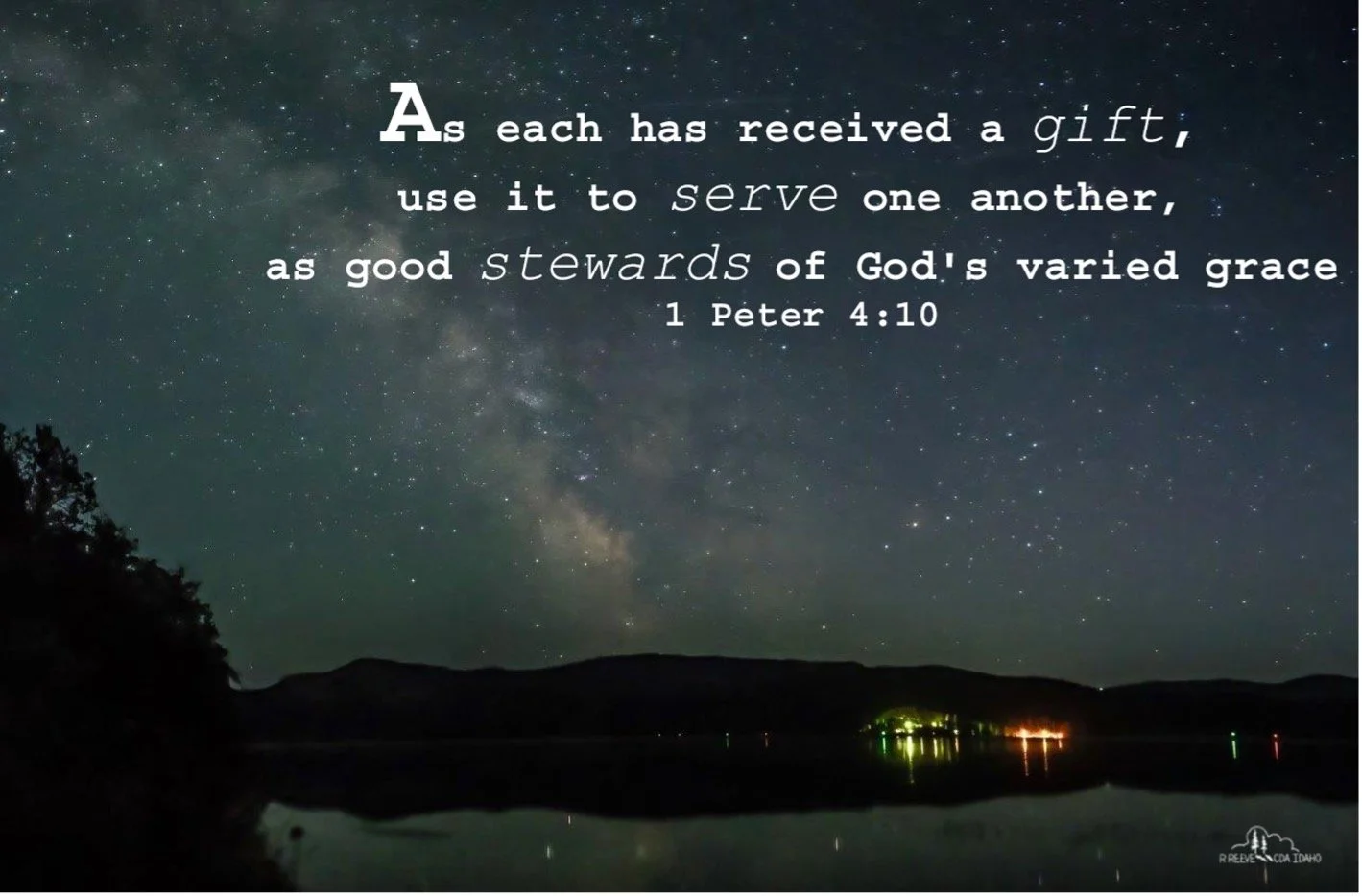Become a Good Steward of God’s Good Gifts
Looking south toward Rocky Point from Benewah Lake, Ron captured this photo of the Milky Way.
Recently, we attended an event sponsored by our retirement specialist. While listening to the keynote speaker, I was reminded of a word that has captured my attention and impacted my decisions in the past few years. “Stewardship,” is defined by Merriam-Webster’s online dictionary as the conducting, supervising, or managing of something
especially : the careful and responsible management of something entrusted to one's care
[such as] stewardship of natural resources
The last line of that definition reminded me that oftentimes I have thought of “stewardship” as the responsibility of something that is bigger than I, such as:
The government. For instance, in a democratic republic like the United States, I cast my votes for an individual who I believe will act as a good steward of the Constitution, taxes I pay, and the land in which I live.
In the faith community in which I worship, I must have faith in the leadership to be diligent in stewardship of financial resources and in fulfilling the “Law of Love” for God, individuals, the community, and the world.
Stewardship is also an important element of the financial, relational, and spiritual health of my family.
But, what about personal stewardship of ME? I began thinking about this several years ago when I taught the book Boundaries by Drs. Cloud and Townsend. Before teaching the first class, I had reluctantly said yes to my pastor supervisor who strongly suggested I facilitate the course which was often requested at the church where I worked as a care ministries coordinator.
I ended up teaching about boundaries seven times, and each time I discovered something new, which I figured the Lord knew I needed to learn! The benefit of learning about boundaries is discovering the value of saying a healthy “no” so you have freedom to say the best “yes.”
The authors use the analogy of a yard to illustrate boundaries. Each of us, they stressed, is responsible for our own fenced-in yard. I will have neighbors whose yards are important, such as those of my husband and children, but my responsibility is to first be the steward of my own yard. (Analogies and metaphors always break down eventually, but they can provide a valuable framework for understanding a concept, and I love that Jesus often used them in his teaching.)
During the seven times of teaching and learning about boundaries, I began to imagine my yard is like the Hebrew word for “soul,” which is “nephesh,” and refers to a person's entire being, both material and non-material. One’s “nephesh” includes thoughts, vocation, emotions, finances, possessions, talents, relationships, body, health, and spirituality. I realized that God has given me ultimate responsibility for stewardship over one soul, and that is mine.
I feel like the best prayer to promote healthy stewardship for one’s “nephesh” is the Serenity Prayer:
God, grant me the serenity to accept the things I cannot change, courage to change the things I can, and wisdom to know the difference. Amen
Do you feel like there is an area in your “nephesh” that God is calling you into better stewardship? If so, would you join me in prayerfully asking for Divine assistance and courage to either accept, act, or discern our next healthy “no” for a better “yes?”
One of the beautiful lilies blooming in our backyard. My husband, Ron, is a much better steward of our plants than I am!
Blessings on your journey,



